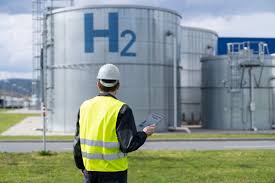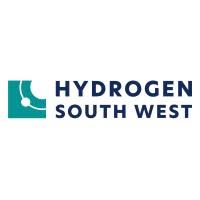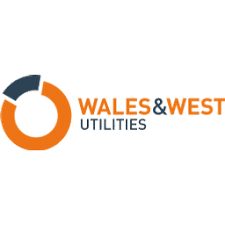Thousands of commercial vehicles using Bath’s roads could be running on clean hydrogen by 2030 while the city’s gas pipes could be used to distribute what is widely seen as the fuel of the future, according to new studies.
Findings of a report produced commissioned by Hydrogen South West – which brings together 10 leading organisations covering aerospace, shipping, hi-tech engineering and public utilities - suggest that 7,000 vehicles could be running on hydrogen within the region within six years. 
This would require a supply of up to 88 tonnes of hydrogen a day along with a network of refuelling stations in towns and cities across the region.
The research was undertaken by multi-disciplinary professional services consulting firm WSP to ascertain the potential market demand for hydrogen as a transport fuel for utilities, logistics, freight and passenger fleets, such as light goods vehicles, heavy goods vehicles, buses and coaches.
Meanwhile, Wales & West Utilities (WWU) has commissioned studies to consider the potential of using hydrogen as a cleaner, greener fuel for industry in the South West to help meet decarbonisation targets and what infrastructure would be needed to support it.
These will explore the potential for hydrogen development and usage and consider how the firm’s existing extensive infrastructure can be harnessed to deliver a low-carbon network for industry. 
These would complement WWU’s existing 19 biomethane sites already providing decarbonised gas in the South West.
Hydrogen South West chair Andy Clarke said: “The decarbonisation needs of the South West are very different to those of the rest of England.
“This largely rural region relies heavily on its roads to get people, goods and services to where they need to be, and our members consistently report that the refuelling needs of their vehicle fleets, which are predominantly light goods vehicles, cannot be met by battery electric technology.
Mr Clarke, who is also director for integrated transport at construction and engineering group Costain, added: “This is due to a range of factors including journey pattern and length, payload and topography, challenges for which hydrogen is a far more effective solution.”
WSP UK sector lead, oil, gas & energy transition Stuart Cory said: “We are delighted to deliver this assessment for the role of hydrogen in support of low carbon land transportation in the region. 
“By presenting a clear view of the potential regional demand, we hope this study provides both a baseline and the vital foundations to build from.
“Together with Hydrogen South West members, we’re now exploring the next steps to build on this assessment and support the development of an ecosystem that includes hydrogen refuelling clusters at strategic locations.”
Hydrogen South West is focusing on key sectors for the region such as maritime, aviation and utilities, with easyJet, Airbus and Hynamics (EDF); consultants and engineers Costain and WSP; Bristol Port, Bristol Airport, Wessex Water and WWU among its members.
WWU’s South West Conceptual Plan (SWCP) will develop options for a local hydrogen transmission system based on a map of production and demand.
It will consider existing gas users and the potential for new users, for example in maritime and aviation industries.
The plan will also explore how WWU’s existing natural gas network can be repurposed, including the costs and benefits of such proposals, as well as the regulatory implications.
Its Decentralised Alliance for South West Hydrogen (DASH) will together consider what infrastructure the region needs and the potential of using hydrogen as a cleaner, greener fuel for industry, to help meet decarbonisation targets.
It will also investigate the region’s relatively dispersed industrial demands, which do not form a natural ‘cluster’ as other areas of higher industrial concentration, and the potential for onshore and offshore renewables and explore the viability of more radically decentralised hydrogen infrastructure, based on intermittent renewable generation.
WWU head of net zero & sustainability Matt Hindle, pictured, said: “Across the South West, people rely on the gas network today for safe, reliable and cost-effective energy – and that includes thousands of industrial customers and tens of thousands of other commercial businesses.
We need to find low carbon solutions for all energy users, along with homes and power generation – and hydrogen has a big role to play.”
A string of projects across the West of England are positioning the region as the UK’s hydrogen powerhouse.
These include a green hydrogen production and storage plant at the state-of-the-art Institute for Advanced Automotive Propulsion Systems (IAAPS) on the Bristol and Bath Science Park, and the multi-million pound The Great Western Supercluster of Hydrogen Impact for Future Technologies (GW-SHIFT), which will support innovative research and activities to create a thriving low carbon hydrogen supercluster in the region.
Experts predict harnessing clean green hydrogen to decarbonise the region’s transport, energy and storage & distribution sectors could support up to 100,000 jobs by 2050.



















